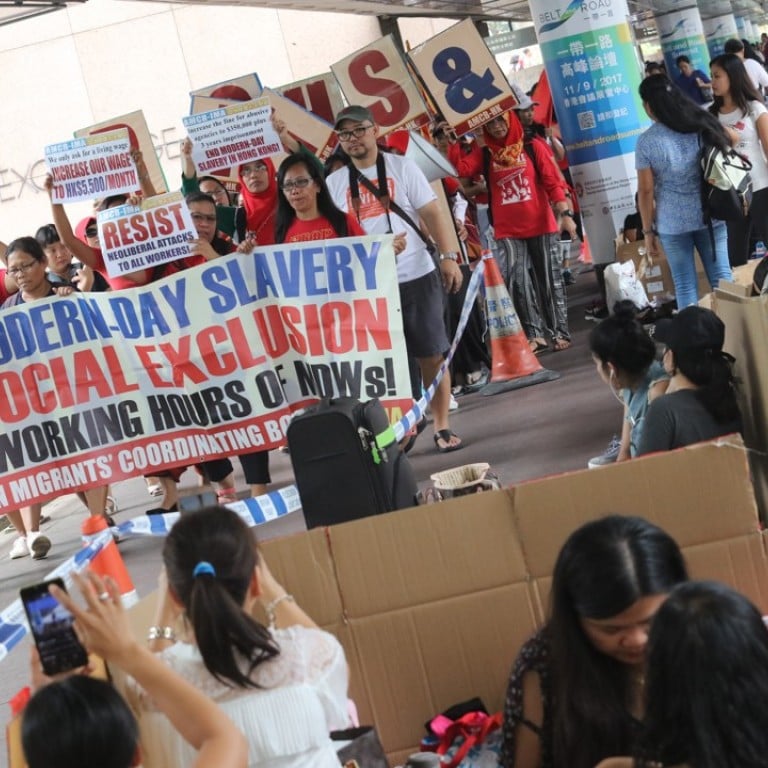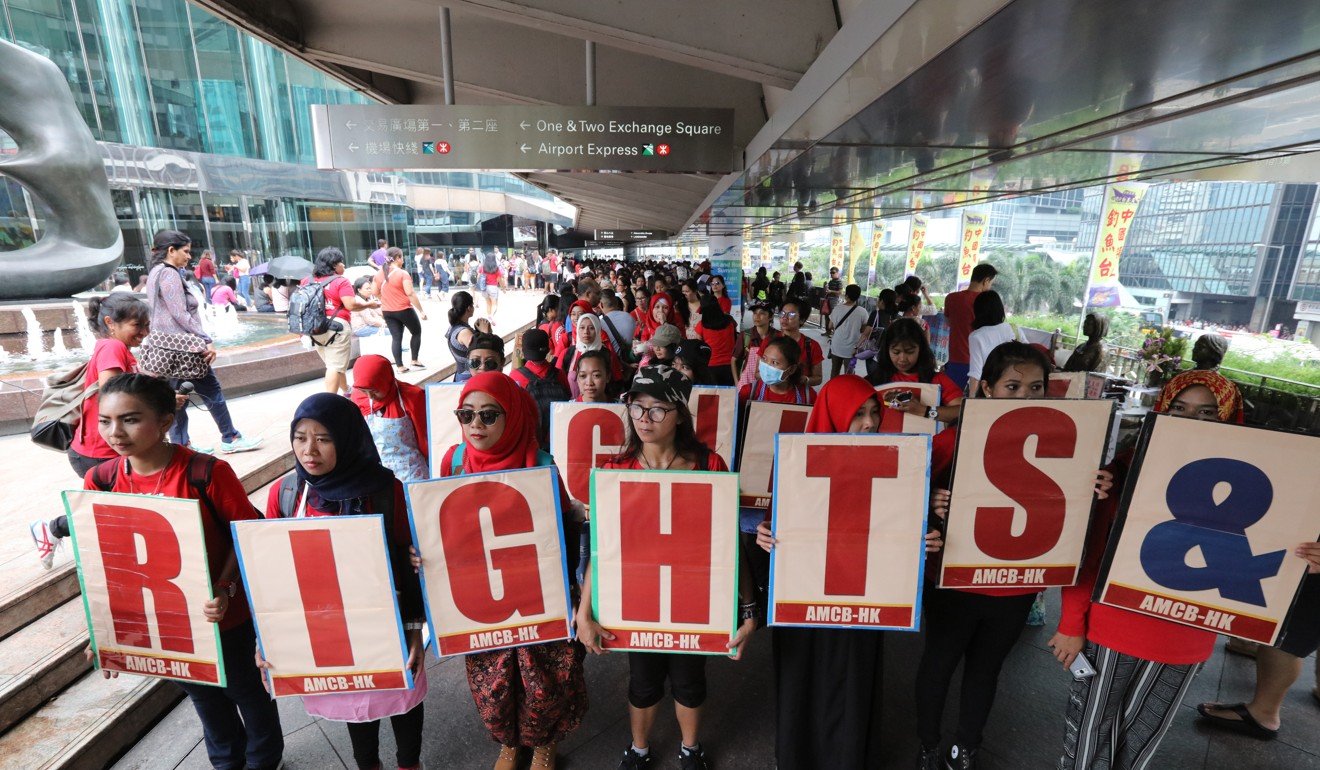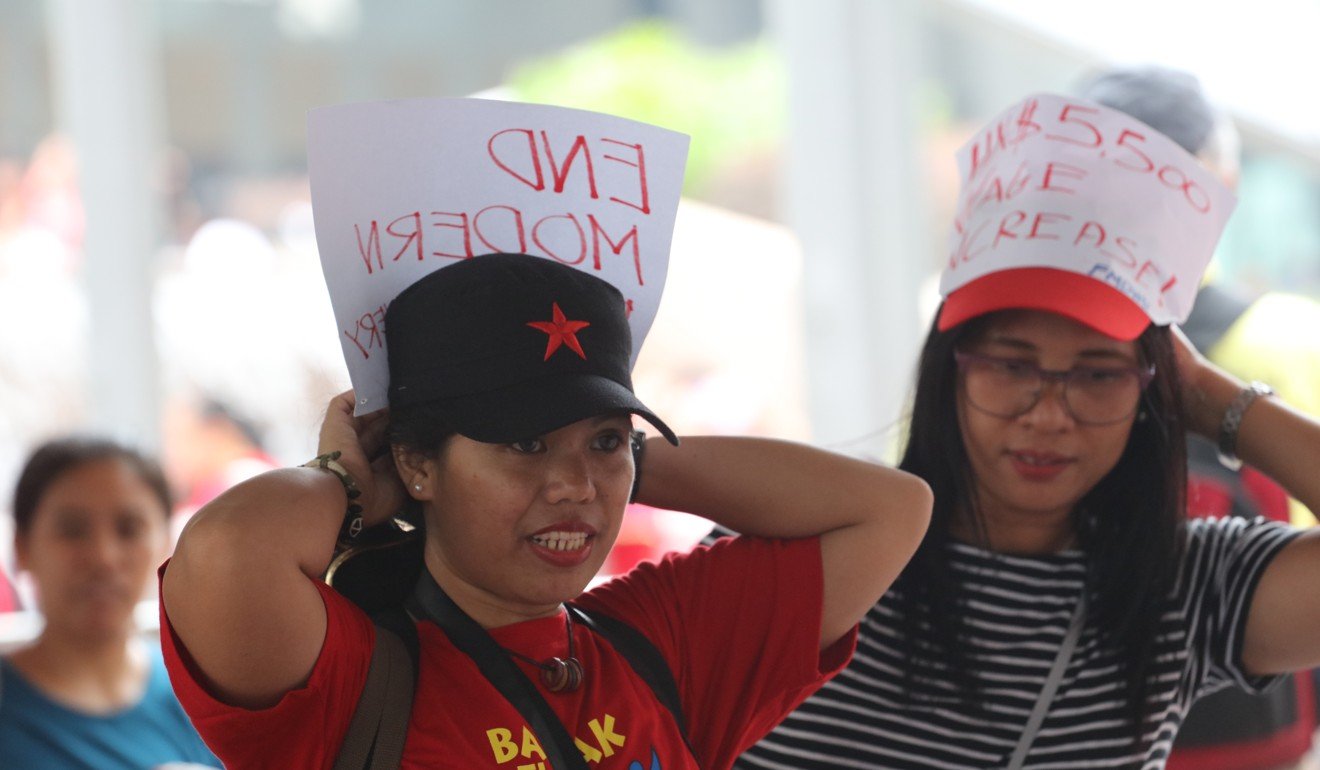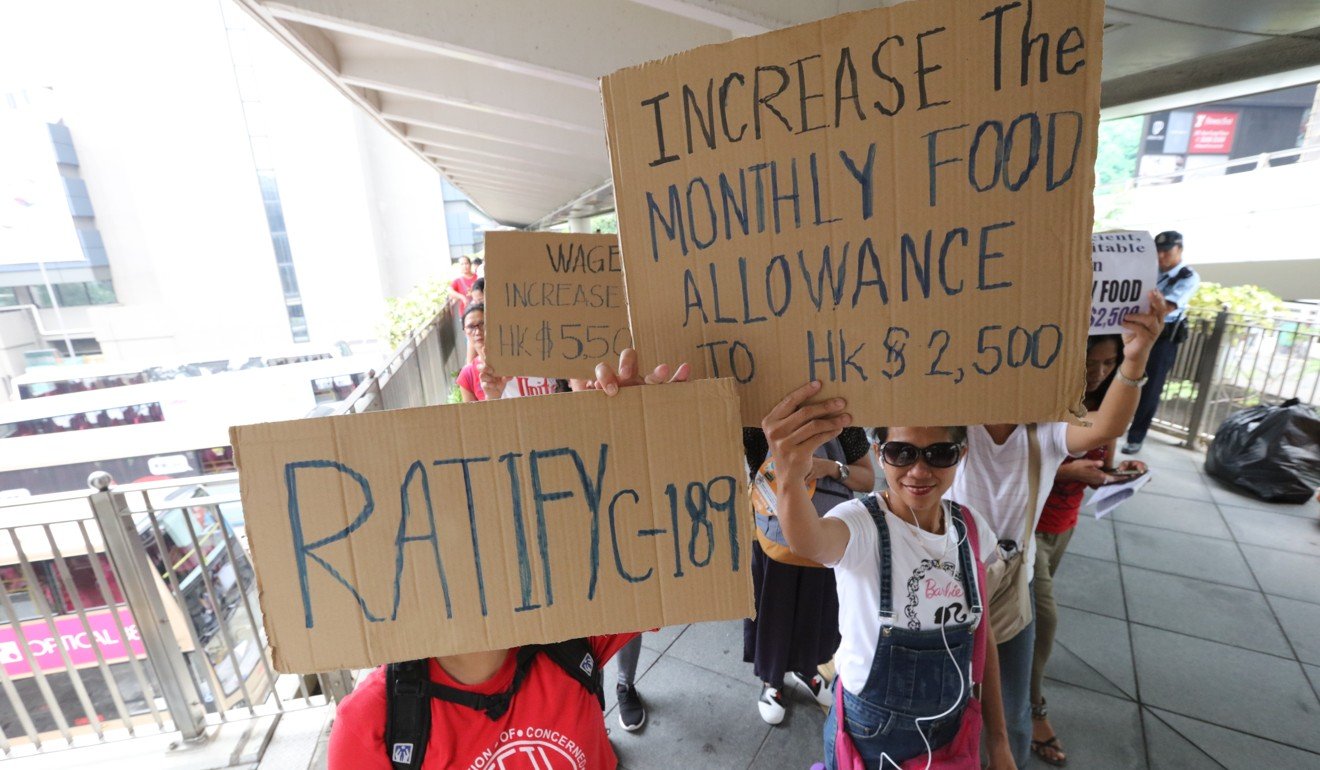
Hong Kong’s domestic workers march through city to call for 27.6 per cent wage rise, as concerns mount over recent deaths
Campaigners urge minimum pay increase from HK$4,310 to HK$5,500 per month
About 600 turned out despite the less than favourable weather for the 1km procession from Exchange Square in Central at 2pm to rally outside the Labour Department building.

Campaigners called for an increase in the minimum wage from HK$4,310 to HK$5,500 a month for the 350,000 helpers, plus a rise in the food allowance from HK$1,037 to HK$2,500 per month, according to the Asian Migrants’ Coordinating Body. They also pressed for the government to scrap the “live-in” rule, which requires foreign domestic workers to live with their employers, as they insisted it left them open to exploitation.
The march came as campaigners grow increasingly concerned about the safety of helpers, who are often subject to unregulated working conditions, while sleeping in substandard accommodation, including toilets.

Edi Lestari, spokeswoman for the body, said she was increasingly concerned about recent deaths, including the case of a 28-year-old Filipino, Lorain Asuncion, who fell from a seventh-floor flat in Shenzhen in July after being sent to work there by her Hong Kong employers.
“The situation is getting worse,” she said. “No one wants to do anything about it. A number of workers have already died this year, and it is worrying.”
The situation is getting worse ... No one wants to do anything about it
The demonstration came ahead of an annual salary review by the Labour Department. The minimum wage has increased by only HK$450 in the past 18 years, which campaigners say has failed to keep up with rising living costs.
Last year the government increased minimum pay by 2.4 per cent to HK$4,310 a month, and the food allowance by 4.2 per cent, but it has not yet indicated what additional support, if any, it might concede this year.
In a statement ahead of the march, Asian Migrants’ Coordinating Body spokeswoman Dolores Balladares said increasing wages remained the focus of the demonstration.
“The measly increases for foreign domestic workers in past years are very much insufficient to reach a living wage,” she said. “Inflation in Hong Kong is constant, yet the wages of workers are not adjusted accordingly against the upward trend of the cost of commodities and living in Hong Kong.”

Balladares also said the food allowance desperately needed to be increased so that it was in line with what academics had estimated the average Hongkonger needed for a nutritious diet.
She said a study by the Asia-Pacific Mission for Migrants and Professor Julie Ham at the University of Hong Kong’s Department of Sociology found food provision was one of the biggest concerns among foreign domestic workers.
“Many migrant domestic workers are not provided with or have access to sufficient and nutritious food that is an international standard of food security,” she said.
Philippine official moves to quash reports mainland China will offer domestic workers salaries three times higher than Hong Kong’s
“They are often provided with an insufficient amount of food – despite food sufficiency in the household – or are made to eat leftover foods, or worse, spoiled food.”
In January, the government introduced a window cleaning ban for helpers after several died in falls.
Despite welcoming the ban, which was proposed by the Philippine consulate, campaign groups said it did not go far enough in protecting helpers’ rights, as it required employers to renew the contracts of their current helpers.
Study finds Hong Kong domestic helpers subjected to employment terms abuse by more than 70 per cent of agencies
In Hong Kong, at least 29,500 people, mainly foreign helpers, out of a population of more than seven million were trapped in modern slavery, according to the Global Slavery Index 2016, which assessed the problem in 167 countries and regions.
Hong Kong is the 12th richest territory in the world based on its gross domestic product, according to data from the International Monetary Fund.

